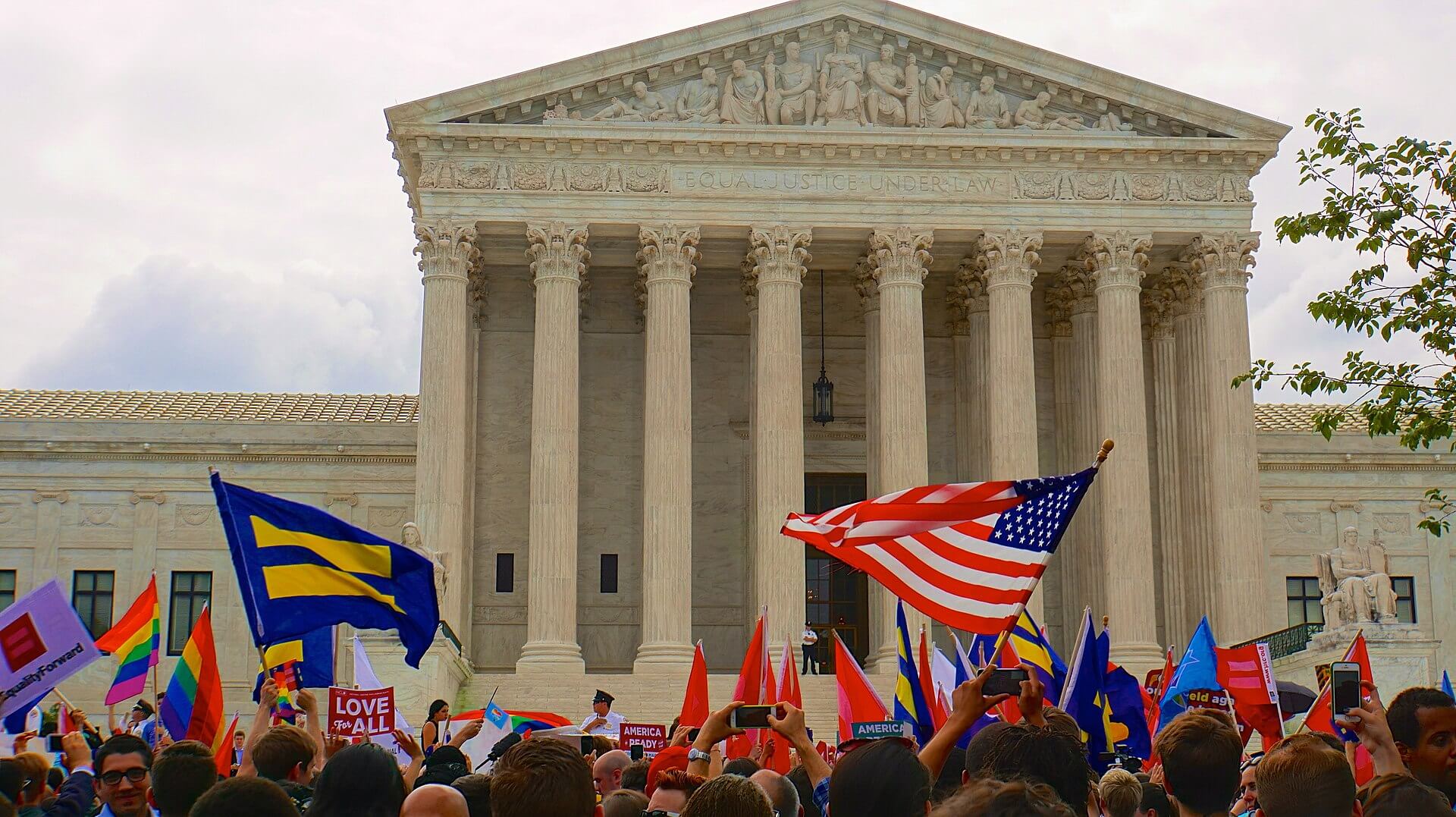The U.S. Supreme Court is once again at the center of a national debate that could reshape the legal landscape for LGBTQ+ Americans. Nearly a decade after the landmark Obergefell v. Hodges decision guaranteed same-sex couples the right to marry, the Court is now considering whether to hear a case that could threaten those hard-won protections.
The Case That Could Change Everything
On November 7, the Supreme Court will privately conference to decide if it will take up the case of Kim Davis, the former Kentucky county clerk who refused to issue marriage licenses to same-sex couples on religious grounds. Davis, who was briefly jailed in 2015 for contempt of court, is appealing a hefty damages verdict and arguing that
Obergefell infringes on her First Amendment rights.
Her legal team is urging the Court to treat
Obergefell as “egregiously wrong,” drawing parallels to the Court’s 2022 decision to overturn
Roe v. Wade and return abortion rights to the states. If the justices agree to hear Davis’ case, it could open the door to a direct challenge of marriage equality nationwide.
What’s at Stake for LGBTQ+ Rights?
The possibility of the Supreme Court revisiting
Obergefell has sent shockwaves through the LGBTQ+ community and its allies. While legal analysts caution that the Court may opt for a narrow ruling—perhaps focusing on Davis’ personal liability rather than the broader constitutional question—the stakes are undeniably high.
If the Court were to overturn or weaken
Obergefell, the consequences could be profound:
-
States could regain the power to ban same-sex marriage, potentially invalidating thousands of marriages and stripping couples of critical legal protections.
-
Federal recognition of existing marriages would remain under the Respect for Marriage Act (2022), but new marriages could be blocked in states that choose to ban them.
-
Reliance interests—the legal principle that people have built their lives around the current law—would be thrown into chaos, affecting families, children, and financial arrangements.
The Politics of the Court: A Decade of Change
Since the 2015
Obergefell decision, the Supreme Court’s makeup has shifted dramatically. Three conservative justices—Neil Gorsuch, Brett Kavanaugh, and Amy Coney Barrett—have joined the bench, all appointed by former President Donald Trump. Justice Clarence Thomas, a longtime critic of
Obergefell, has openly called for the Court to reconsider the ruling, especially after the
Dobbs decision overturned
Roe v. Wade.
Yet, not all conservative justices are eager to revisit marriage equality. In a recent interview, Justice Amy Coney Barrett acknowledged the “very concrete reliance interest” in marriage equality, hinting at the complexities involved in unraveling such a deeply embedded right.
Public Opinion and Political Fallout
Despite the legal uncertainty, public support for same-sex marriage remains strong. Recent polls show that a majority of Americans continue to back marriage equality, a dramatic shift from just a decade ago. Any move by the Supreme Court to roll back these rights would likely spark fierce political backlash and renewed activism.
What Happens Next?
-
November 7: The Supreme Court will decide in private conference whether to hear Davis’ case.
-
If review is granted: The Court could issue a ruling with sweeping implications for marriage equality—or choose a narrower path that leaves
Obergefell intact but addresses Davis’ specific claims.
-
Regardless of outcome: The Respect for Marriage Act ensures federal recognition of same-sex marriages, providing a safety net even if state-level bans return.
The Bottom Line
The fate of
Obergefell v. Hodges now hangs in the balance. As the Supreme Court weighs its next move, LGBTQ+ Americans and their allies are bracing for a decision that could either reaffirm or upend a decade of progress. One thing is certain: the battle over marriage equality is far from over, and the eyes of the nation are once again fixed on the highest court in the land.
Sources
1. Supreme Court's same-sex marriage case - PinkNews
2. Obergefell v. Hodges
3. Court to consider whether to hear challenge to same-sex marriage ...
4. Obergefell v. Hodges
5. Supreme Court will decide if it will take case challenging same-sex ...
6. Why the Supreme Court Should Overrule the Same-Sex ...
7. What's At Stake at the Supreme Court in 2025-2026: Fast Facts
8. Obergefell v. Hodges | 576 U.S. 644 (2015)
9. Will the Supreme Court revisit its ruling on same-sex marriage?
10. Obergefell v. Hodges
11. United in Love: Understanding Obergefell v. Hodges ... - Equality Ohio
12. Same-Sex Relations, Marriage Still Supported by Most in ...
13. Kim Davis seeks Supreme Court review in challenge to marriage ...
14. SAME-SEX MARRIAGE AND EMPLOYER CHOICES ...
